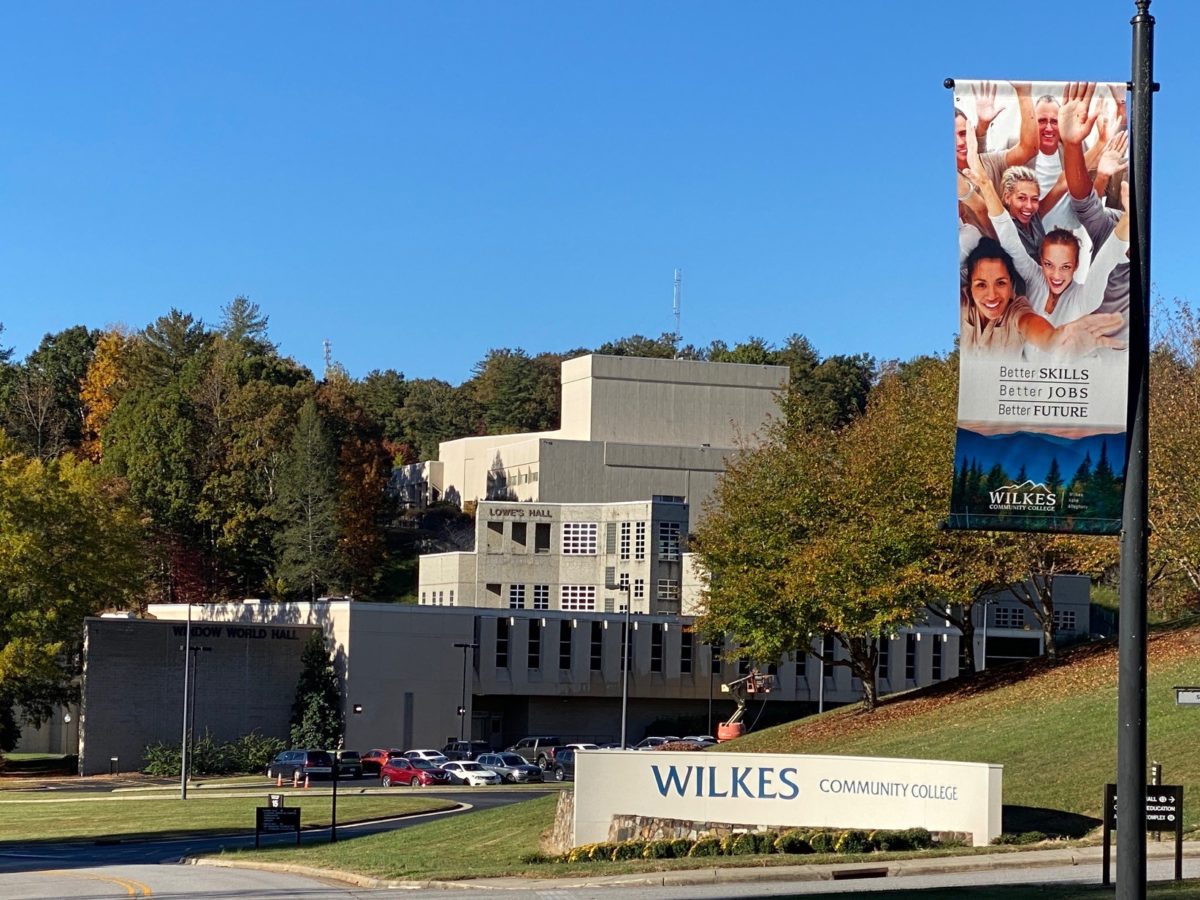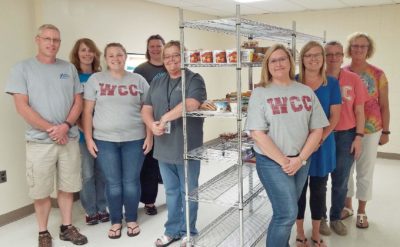

|
|
This series takes a look at the role community colleges can play in economic development.
- This community college created a playbook other colleges can use to establish a student success center with a goal of doubling the graduation rate.
- This community college co-founded a nonprofit to bring higher-paying jobs to the region and is building spaces for workers to come together, revitalizing downtowns.
- This community college is working with a taskforce to connect workers to high-quality, affordable child care, allowing them to stay in the region to work.
With this strategic focus on economic mobility for students, economic prosperity for workers and employers, and economic impact for the region, the future of work is happening right now in Wilkes County.
Back in February 2020, Zach Barricklow, the vice president of rural innovation for Wilkes Community College and the first executive director of NC Tech Paths, spoke to leaders from across North Carolina at a convening held by the Institute of Emerging Issues. It was just before the pandemic, and he offered what he called then a “snapshot of what rural North Carolina could look like in the future.”
Barricklow lives in Sparta, which has a population of 1,800 but also had fiber optic internet before Miami or Atlanta.
In Sparta, Barricklow and his family joined other professionals who were opting out of city life and moving to the mountains where a combination of high-speed internet and good schools for their children were allowing software engineers, data analysts, writers, consultants, and entrepreneurs to work for companies in Charlotte and Raleigh but also Chicago and Los Angeles.
“They travel when they need to,” said Barricklow, “but they live and enjoy the lifestyle of the mountains.”
Barricklow told state leaders that “when it comes to professional services, when it comes to remote workers, the need to be in-person is largely a construct of our own minds. If we have great internet and we are committed to doing our work and doing it well, then you can do it from anywhere.”


The pandemic proved him right for those who have grown up in the area and those choosing to move there.
Barricklow and Jeff Cox, the president of Wilkes Community College, had been imagining along with leaders in northwest North Carolina how to invest and expand the telework economy. They believed partnerships could be built with companies, and they started by asking business leaders how many of their employees could work remotely. They believed they could match really happy, productive, creative employees who loved where they lived with those job opportunities. They believed they could build collaborative work spaces that would draw workers back into downtowns.
The strategy focuses on supporting students to create the possibility of economic mobility, creating workforce opportunities and high-quality and affordable child care to offer pathways to economic prosperity, and building communities where people will want to live and work, leading to regional economic impact.
A recent study of Wilkes Community College — which serves Wilkes, Ashe, and Alleghany counties — found the college has an annual economic impact of $112.7 million, including $25.9 million in operations impact, $4.6 million in student impact, and $80.1 million in alumni impact.
Barricklow and Cox want to grow that impact. This series takes a look at the role community colleges can play in economic development.
Next in the series: The first step was getting students to graduate with a credential or degree to provide a family-sustaining living wage and the economic mobility needed to remain in the region.



